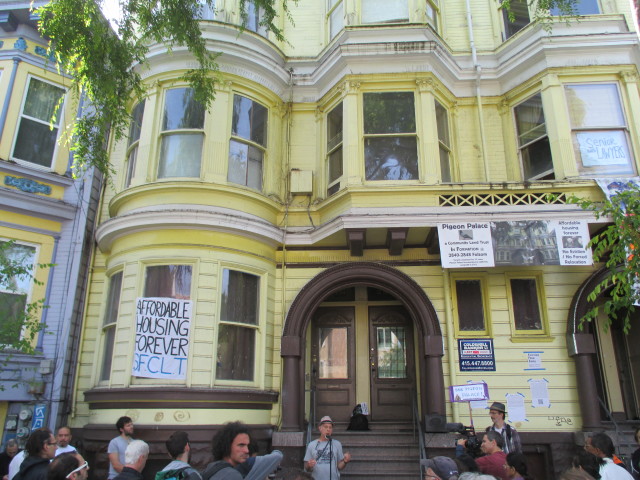
Go through any of the real-estate-listings databases, and you’ll see dozens of small rental properties – typically places with four-to-six units – on the market these days. They are often snapped up by speculators, who use the Ellis Act to evict all the tenants, then flip the property to wealthier people as tenancies in common.
The city loses affordable housing every time that happens. And it’s far, far cheaper to preserve existing affordable housing than to replace it.

Sup. Sandra Lee Fewer is proposing an alternative that has the potential to be a transformative approach to creating more social housing (that is, non-market housing) in San Francisco.
Her legislation, which will come before the Budget and Finance Committee Wednesday/10, would give local nonprofit housing organizations a right of first refusal for any rental property that comes on the market.
If the bill passes, any private owner of a building with three or more units – as well as units under construction and property where such buildings could be constructed – would have to allow the nonprofits to make an offer before putting the property on the market.
If the owner decided to decline that offer, the nonprofit would still have the right to match whatever market offer the owner was ready to accept.
Fewer’s bill doesn’t include any new funding. But let’s think about this for a minute.
The city spends close to $300 million a year on programs to fight homelessness. Nonprofits build affordable housing as fast as the revenue is available, and the Mayor’s Office brags of getting thousands of people off the streets. But as Jennifer Freidenbach, director of the Coalition on Homelessness, notes, for every one person the city houses, two more become homeless (thanks to the tech boom that fomer Mayor Ed Lee and so many others, including Mayor London Breed, so strongly supported).
For the money we spend on new housing and on addressing the problems of people who were made homeless by evictions, the city could fund nonprofits to buy at least 150 buildings a year, maybe more, and take them permanently out of the private market.
The SF Community Land Trust has proven that this works.
And this isn’t just grant money — the nonprofits would continue to collect rent, which could pay the city back (just not at the same level as speculators).
That, in the end, is going to be the only effective solution to the housing crisis. Building more market-rate housing won’t prevent displacement; the evidence suggests it will make the problem worse.
But giving nonprofits the right to buy everything on the market – and then going beyond the Fewer bill, and setting as a top city priority funding every one of those purchases – could make a dramatic difference.
Imagine if San Francisco leaders had the imagination 20 years ago to buy up every multi-family rental unit that went on the market. The price tag would have been large – but far lower than we spend today do deal with the fact that we didn’t take those units off the private market.
If homelessness is the number one problem in the city, as many polls show, passing the Fewer bill is a no-brainer. Funding it – at whatever level is necessary to make sure that not a single unit of rent-controlled housing ever winds up in the hands of predatory speculators who evict the existing tenants – would be on of the most dramatic and effecting things the city could ever do.


